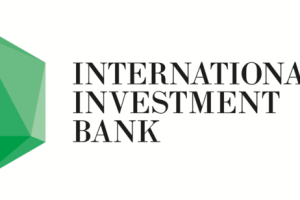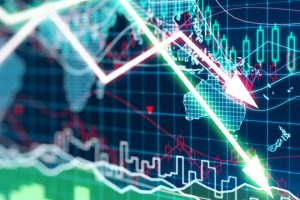Alătură-te comunității noastre!
Vezi cele mai recente știri & informații din piața de capital

It’s presumptuous to try to predict the impact on society of a nascent and promising technology, but history shows that people will have a lot of free time as the development of artificial intelligence continues.
Whether it’ll make them happy and how the spoils will be shared is harder to predict.
Over the past 50 years, the tech industry has generally grown faster than the economy as a whole. From 2006 to 2016, the digital economy grew at an average annual rate of 5.6%, nearly four times faster than overall performance, according to the U.S. Bureau of Economic Analysis.
This kind of expansion seems oddly consistent. The revenues of technology companies on Fortune’s list of the 100 largest U.S. companies, adjusted for inflation, have grown at a similar rate for five decades.
The productivity of U.S. workers has grown by about 2% a year for seven decades. While higher capital intensity and a more skilled workforce are steady contributors, the ability to use technology successfully makes a bigger difference.
Sectors that are able to automate tasks and reduce labor, such as manufacturing, will generally see higher productivity, while others, such as education, will have a harder time.
This process also takes time. In 1987, economist Robert Solow said computers were visible everywhere but in productivity statistics. A decade later, productivity skyrocketed.
One reason for this productivity increase has remained largely constant. Workers tend to trade at least some of the gains from automation for more time off.
While the number of hours worked by U.S. employees hasn’t declined as rapidly as in France, for example, both countries have seen declines over the past four decades.
According to the Organization for Economic Cooperation and Development, Americans have reduced their annual work hours by 47 hours since 1979, compared with 274 hours for the French.
Looking back even further, the trend is the same. Nobel Prize-winning historian Robert Fogel has shown that the amount of time people spend sleeping, commuting and eating didn’t change between 1880 and 2000.
However, the amount of time spent on housework and work decreased by an average of 3.8 hours per day, leaving more time for leisure.
The development of machines that can mimic thinking could lead to massive economic dislocation. However, developed economies have already undergone several major changes.
In the 1800s, three-quarters of U.S. workers were employed in agriculture. Today, about 1% of the workforce is employed in agriculture, according to the U.S. government.
A similar transformation occurred in manufacturing, where the percentage of total nonfarm employment has declined by more than half since 1979.
The adjustment can be painful. The loss of manufacturing jobs was painful for the U.S. Midwest for decades, as workers took time to find service sector jobs or retrain. Many older workers never managed to do so.
One threat is that the upheaval from AI is bigger and faster. For example, about 70% of Americans are employed in the service sector. If technology quickly makes cashiers, teachers, waiters, and doctors obsolete, they may have trouble finding other jobs.
A second danger is what those laid off will do. In the past, the unemployed found work because there were always things that humans could do better or cheaper than machines.
Sure, new technology will create unimaginable new jobs in influencing and supervising people. But as AI systems become far smarter than humans, there may be fewer niches for humans to fill.
On the positive side, these trends are likely to free up a lot of labor time.
But that doesn’t necessarily mean people will be happy. AI could undermine the sense of fulfillment from work or devalue free time because people will have too much of it.
Involuntary free time created by unemployment or underemployment will prove particularly damaging.
Yet society as a whole should be more prosperous. Effective artificial intelligence means that production will become cheaper, goods and services will likely be personalized, new medicines will be developed, and so on.
It won’t be easy to distribute these gains, because the winners will want to keep the spoils they have earned. In the past, economic changes have led to greater economic inequality.
Another long trend is likely to come into play here. As the economy shifted from agriculture to manufacturing and services, governments grew larger and social safety nets became more padded, even in the more liberal-leaning United States.
A richer society will hopefully want to distribute more, both for reasons of equity and social stability. But all this free time will leave people plenty of time to argue about what level is optimal.









Vezi cele mai recente știri & informații din piața de capital